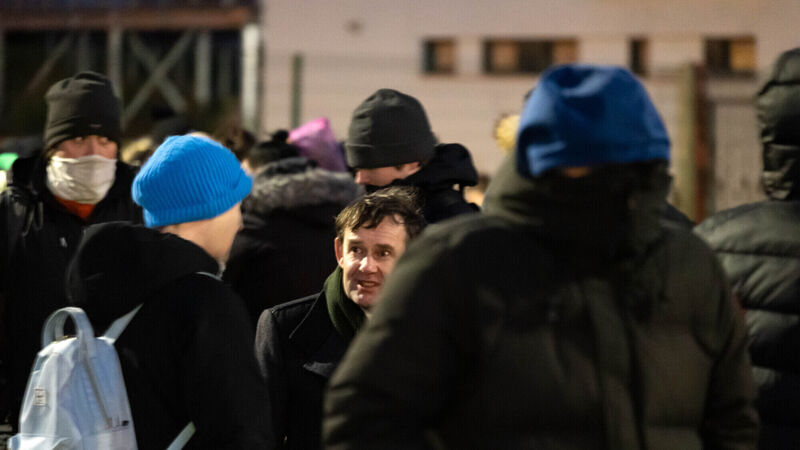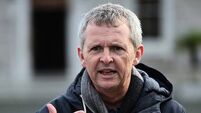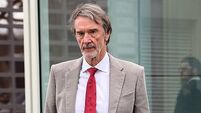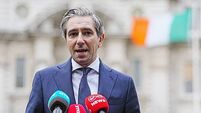The National Party's gold bars signal a disturbing reality about far-right groups in Ireland

National Party leader Justin Barrett (centre) surrounded by masked men as activists protested on the Ballymun Road against the housing of refugees in Dublin in January 2023. File photo: Sam Boal / RollingNews.ie
The beginning of the National Party was inauspicious, to say the least, but few saw its future as being embroiled in a row over €400,000 worth of gold bars.
The party had registered in August 2016 and, in November of that year, planned a launch event in the swanky Merrion Hotel in Dublin's city centre. The invite said that the hitherto mysterious party was to be led by Justin Barrett, the former chair of the No To Nice campaign and James Reynolds, a Longford farmer.













